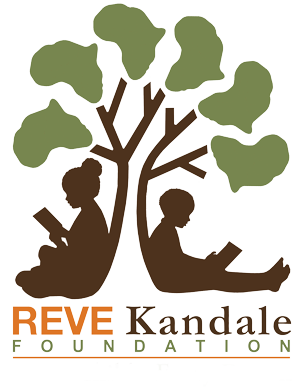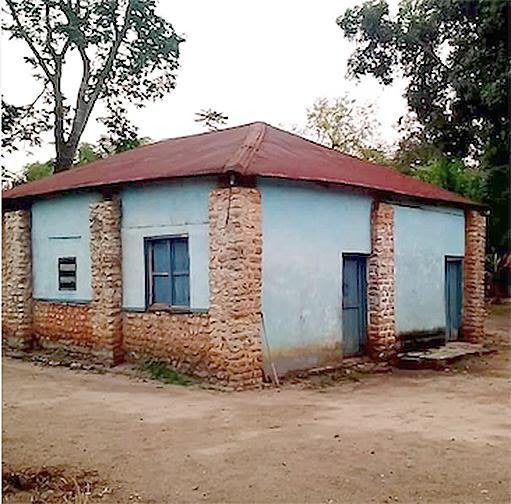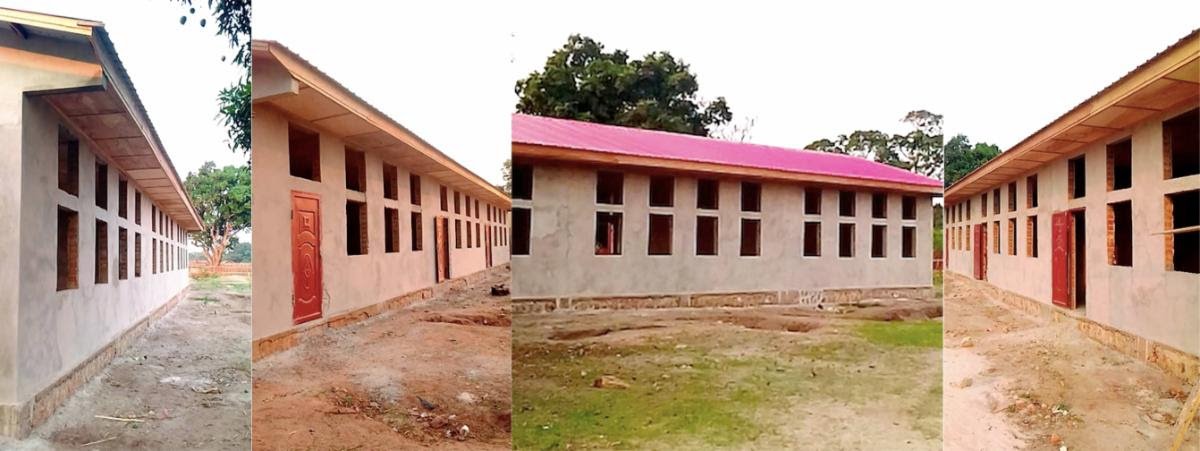As if to coax Colette from the comfort of her tukul, the sound of beautiful hymns emanates from the church at 5 AM. Like the smell of fresh bread baking, the chords waft through the village and encourage the day to begin. As the morning light grows stronger and the church music recedes, birds begin to fill the branches of the mango and palm trees with their own melody.
Colette anticipates the influx of morning greeters, but she must first endeavor to bathe in the chilly morning water. Last night, she recalled hearing some loud sounds outside of her tukul as though someone was stomping on the ground with heavy boots. She checked the time, and it was 2.30am. Several hours later when she emerged from her tukul, she shouted Chaud-Chaud’s name, who was busy sweeping away the leaves. She asked him if he knew what all the noise was during his rounds the previous night. Chaud-Chaud ran out of sight and quickly returned, proudly holding up a limp and very dead snake. It was small but still very dangerous. Colette jumped back and returned inside the tukul at the sight of this night villain. Chaud-Chaud hid his laugh and took the snake away, but not before Collette took a picture of it.
Down by the depot the flour grinders are turning the days grain into flour. Women are eagerly standing around to observe the process and share stories. A little ways off the masons are busy fitting in the window frames and trying to determine how to position the uppermost frames. In the Multi-Purpose Education Center the ABCD training has begun. ABCD or Asset Based Community Development, has returned to Kandale for its second module, or at least the first half of the second module. The focus of the second module was on Community Centered Development (CCD). There were many people in attendance, especially after word went out about how positive the first module had been.
The first module was centered around finding resources that already exist in the community and where there might be a need that is unfulfilled. The people of Kandale came up with an action plan and decided that the town needed a local market. There had been one many years ago, but there was too much intrusion by the local authorities, so it eventually faded away. Now, however, they are able to have Market Day every Wednesday and Friday, and it has been a big success. Even Colette's father brings avocados from his property and his sought after handmade rattles for sale. He loves Market Day. One of the big selling points for him is the opportunity to socialize and to buy things he wouldn't be able to find otherwise. Either way, Market Day brings him out and puts a big smile on his wise face.
The first part of the second module focused on the concept of a healthy community. Do the people have a role to play in their community or are they idle with no possibilities? They gathered in groups to review the indicators for a healthy community and to do evaluations. What issues are central to community growth? What is working? What does not? and why?
The community reflected upon these questions and one of the ideas they came up with was to hold another soccer tournament. They remembered the joy that everyone experienced and all the reconnections that happened with distant family and friends. It was a profound memory for everyone who attended. Many communities came together to watch their young people play. It was an opportunity to put aside differences, to heal and to reflect upon the many good things in life that they share. Now that COVID is not dictating everyone’s daily life, there is the ‘luxury’ to think beyond the moment to moment. So much has changed in Kandale since the last soccer match in June 2021 and everyone is eager to showcase all the improvements, the new classrooms, the girls’ dormitory with its lights, the growing forest, the internet and other business services. It could be a great opportunity for Market Day to expand beyond fruits and vegetables. There is so much potential.
Colette sensed a shift in the mentality of the townspeople, an actualization of sorts. The numerous programs happening in the town are emblematic of this change. What does development look like? REVE Kandale members have been trained to make bricks, to plant trees, to operate the flour grinders, and to run the Multi-Purpose Education Center with the internet and business center. The locally trained masons are building the classrooms and installing the window frames. A flourishing Market Day benefits all members of the community by supplementing their incomes and reinforcing the importance of community. The number of trips women and children make to fetch water has been reduced because of the installation of three large water cisterns. Now that several new large classrooms have been constructed, the children are educated in a safe, clean, and nurturing environment. Solar panels have brought light to the health center, the Multi-Purpose Education Center, the girl’s dormitory, and is even powering the internet. These are all tangible experiences for the community, and it is being implemented by local people.
Both water assessors, John Nge from Kinshasa and Father Muvuma, the second crew from Kikwit, made assessments for a water pump system in Kandale. They both agreed that it is possible to reach water at a depth of about 100 - 120 meters (or 330 – 400 ft.) It is early days still, but whether solar power can be used to draw the water from such a depth has not yet been determined. There is still a tremendous amount of work to be evaluated, but this is positive news. In the weeks ahead The REVE Kandale Foundation will be envisioning what a water pump system in Kandale will look like and how to pay for it.
A Dr. Gishiya Methode arrived in Kandale with COVID vaccinations. He works for an NGO in Kikwit. He said that he had heard about the many things that have been happening in Kandale and Colette eagerly took him on a tour. On their walk through the forest, they came across some fruit on a tree and Dr. Methode picked several of the fruit and ate them. Colette was taken aback as no one in Kandale had eaten them before and this from a woman who thinks termites are a delicacy.
The caterpillar harvest was very good this year and they were in abundance in the market. One afternoon Colette was called to hurry over to the girls’ dormitory with her camera. The chaperone and the girls came across an antelope who was gingerly inspecting one of the buildings. Antelopes have not been seen near the town in many years. She did not get there in time to see the creature, but she was pleased when she learned that the children shooed it back into the forest instead of looking for their bows and arrows to secure the evenings meal. Things are changing...for the better.
Elementary school students are going on a field trip. With all the new development in Kandale, students are being taken on a tour of the library and internet, the flour grinders and garden. What do you want to be when you grow up? Engineer, mason, gardener, electrician? The possibilities continue to grow.
Donatien Katoko Mputu, fondly nicknamed Doyen, passed away abruptly after arriving home from his chores at the Multi-Purpose Education Center. He will be deeply missed.
Doyen was generous with his affections and time, and everyone benefited from his even-handedness and unselfishness. He gave plenty of it to everyone especially me. He has been an unfaltering presence in all the good work that has happened these many years in Kandale whether it has been carrying rocks from the Kwilu river, nurturing the youth of the community or ensuring all the construction materials for the many REVE projects are kept safe. He has been a source of constancy and a passionate heart for all the positive change in Kandale. He was a patient listener. He never raised his voice, but he knew how to speak with authority and how to get the message across. He started with REVE Kandale from its inception and his engagement and dedication have never wavered. He was the keeper of all the keys to the REVE Kandale office, Tukuls, depot, dorms, etc. and he knew by heart where everything was kept. But most importantly, he was my beloved uncle, my mother’s younger brother. I will deeply miss him. He will be very difficult to replace and presently the community is trying to find a trustworthy person to keep the keys and to be an honest custodian like Doyen had been.
We have decided to split the responsibility among all the staff, each fulfilling a part of Doyen’s daily responsibilities. This is a way for all of us to continue to connect to Doyen and hold him in our hearts.
Thank you for all the sympathies and prayers. - Colette












































































